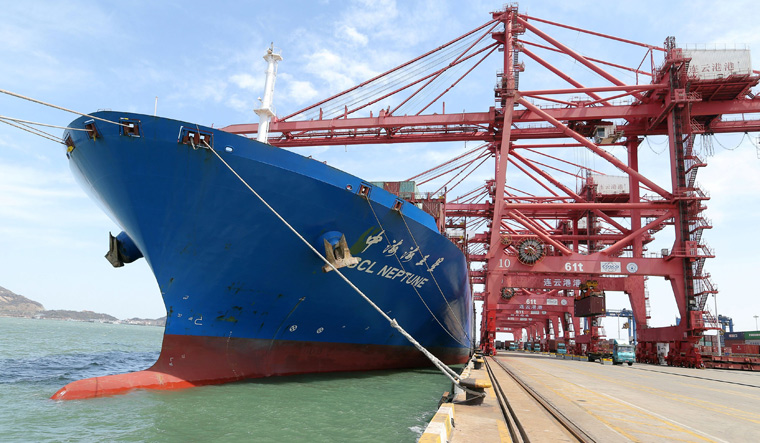Already on the backfoot while battling ethnic armed organisations (EAOs), pro-democracy organisations and militias that have mushroomed after the coup of February 1, 2021, Myanmar and China have decided to kick-start the construction of the strategic Kyaukphyu deep sea port project.
Reports say that last week, a deal was agreed to expedite the project by officials from Myanmar’s ruling junta and of the China state-owned CITIC Group (Myanmar) at the Myanmarese capital Naypyitaw.
CITIC Group (Myanmar) Company Limited, registered and incorporated in Myanmar in January 2017, is a subsidiary of China CITIC Group. It is the main entity to carry out preliminary local businesses of the Kyaukphyu Special Economic Zone’s (KP SEZ) Deep Sea Port (DSP) and industrial park projects.
While work on the Kyaukphyu Port and KP SEZ began in 2010, the Covid pandemic and the military or ‘Tatmadaw’ takeover became a spanner and the project got stalled.
On completion, the $7.3 billion project will enable China to access the Indian Ocean for direct trade links with West Asia, Europe and the Atlantic region by connecting the seaport with Kunming, the capital of Yunnan province, by a rail and road link which will be a part of the 1,700-km China-Myanmar Economic Corridor (CMEC).
The Kyaukphyu Port is only one of several China-controlled points in the region which includes a naval base in Cambodia, Hambantota in Sri Lanka and Gwadar in Pakistan besides a naval station at the port of Djibouti.
Kyaukphyu is located in the sea across the restive Rakhine province where the ‘Tatmadaw’ is battling the Arakan Army. Rakhine is also the homeland of the Rohingyas, a persecuted Muslim community in Myanmar.
A parallel oil and gas pipeline already runs from Kyaukphyu island to Ruili in Yunnan province which then extends to Guangxi after a 2,800-km-long run.
While the pipelines carry 22 million tons of crude oil annually, the gas pipeline transports 12 billion cubic metres of gas. This network of pipelines carrying the much-needed energy sources is critically important for energy-deficient China as it makes the troubled Malacca Straits redundant.



